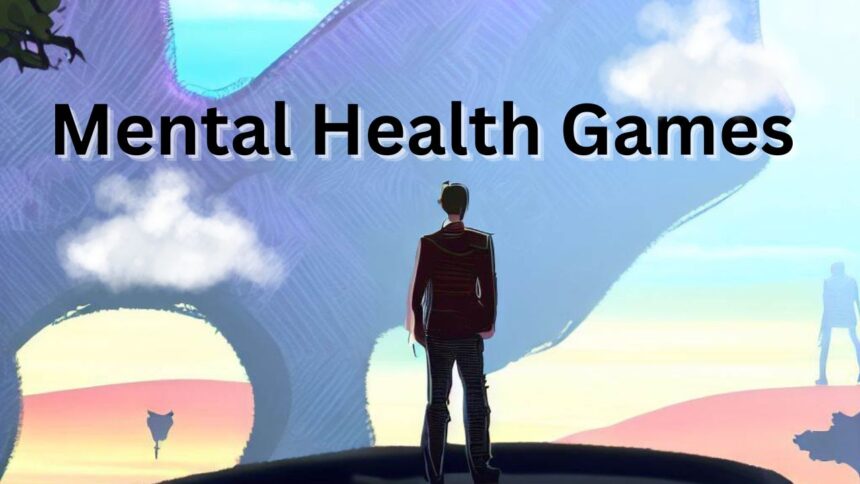In this article, I will discuss The Best Games with Integrated Mental Health Elements that focus on anxiety, depression, trauma, and emotional healing. Mental health games are purposeful at a psychological level.
Each game integrates narrative, visuals, and gameplay to reflect intricate psychological experiences. Each game provides an opportunity to approach mental health issues from a different angle through storytelling that evokes empathy, and through actions that are profound and engage on a meaningful level.
Key Point & Best Games with Built-in Mental Health Features List
| Game Title | Key Point (Mental Health & Emotional Themes) |
|---|---|
| Hellblade: Senua’s Sacrifice | Explores psychosis and trauma through immersive audio and visual hallucinations. |
| Sea of Solitude | Depicts loneliness and depression through a surreal world filled with shadow monsters. |
| Celeste | Represents anxiety and self-doubt as the protagonist climbs a mountain of inner struggle. |
| Omori | Tackles dissociation, grief, and repressed trauma through a dual-world RPG narrative. |
| Night in the Woods | Focuses on existential dread, mental illness, and the challenges of young adulthood. |
| Disco Elysium | Examines addiction, identity, and philosophical despair via deep narrative choices. |
| Spiritfarer | Addresses death, acceptance, and letting go in a gentle, uplifting life-sim journey. |
| Gris | Symbolizes stages of grief through abstract platforming and visual storytelling. |
| To the Moon | Reflects on memory, regret, and the complexities of love and dying wishes. |
| Actual Sunlight | Portrays severe depression and suicidal ideation in a raw, unfiltered narrative. |
1.Hellblade: Senua’s Sacrifice
Hellblade: Senua’s Sacrifice is recognized as one of the best games with built-in features supporting mental health, owing to the genuine depiction of psychosis. The hybrid game integrates neuroscience with the experience of hearing voices to guide players through Senua’s world using optimized audio.
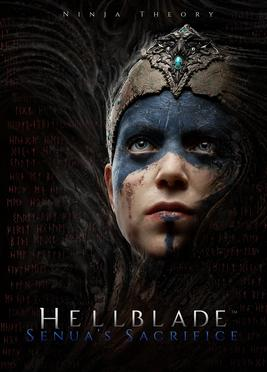
The integration of voices and audio not only advances the empathy players have towards mentally sick people, but also provides a glimpse of the life of a mentally ill person. The game, in essence, advances the emotional and psychological understanding of mental illness.
Pros & Cons Hellblade: Senua’s Sacrifice
| Pros | Cons |
|---|---|
| Accurate portrayal of psychosis using expert input. | Intense hallucinations may be distressing to some. |
| Binaural audio creates immersive psychological depth. | Linear gameplay with limited exploration. |
| Raises awareness through emotional storytelling. | Short campaign length (6–8 hours). |
2.Sea of Solitude
Sea of Solitude is perhaps one of the best games with built-in mental health features since it visualizes an individual’s emotional battles. The game depicts feelings of loneliness, anxiety, and fear as monstrous sea creatures inhabiting a submerged city.
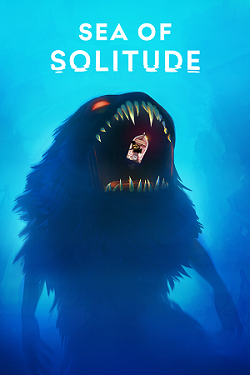
Therefore, players can experience Kay’s emotional journey through exploration and storytelling. Its most striking aspect is how it seeks to externalise one’s internal struggles. It turns mental health issues into a physical world that helps players foster self-awareness, empathy, and emotional healing through interactivity and symbolism.
Pros & Cons Sea of Solitude
| Pros | Cons |
|---|---|
| Visual metaphors clearly represent emotional states. | Repetitive gameplay mechanics. |
| Explores loneliness and inner conflict accessibly. | Narrative can feel overly direct or simplistic. |
| Art style reinforces the theme of isolation. | Limited replay value. |
3.Celeste
Celeste is one of the best games that deals with mental health as it incorporates emotional and mental resilience as the gameplay mechanics. Throughout the story, as players assist Madeline in ascending the challenging Celeste Mountain, the anxiety, panic attacks, and self-doubt that she struggles with is a battle she faces physically.

Perhaps the best aspect of the game is the way it embraces mental hardships with encouraging dialogues and metaphorical challenges that call for one to keep pushing forward. The game clearly signifies that one’s fears can only be faced and conquered step by step, portraying the importance of development without pathologizing emotional challenges.
Pros & Cons Celeste
| Pros | Cons |
|---|---|
| Uses mountain climbing as a metaphor for mental struggle. | High difficulty may frustrate casual players. |
| Supportive, non-judgmental dialogue on anxiety. | Pixel art may not appeal to all. |
| Assist mode promotes accessibility and inclusion. | Short story for highly skilled players. |
4.Omori
Omori incorporates mental health features in its gameplay beautifully by exploring its themes of depression, trauma, and dissociation in a layered manner. The game oscillates between a whimsical dream world and a more somber reflection of life, depicting the protagonist’s psychological coping mechanisms.
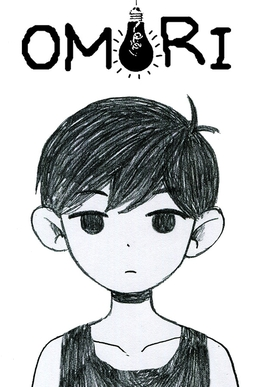
The more notable part of the game is the balance between the deeply emotional turns of the story and the lighthearted RPG gameplay. Players gradually uncover buried memories linked to the protagonist’s trauma. This blend of elements enables participants to understand mental health’s intricacy and, in the process, transform self-examination into a haunting yet compassionate experience.
Pros & Cons Omori
| Pros | Cons |
|---|---|
| Dual-world storytelling reveals complex trauma. | Dark themes may be triggering for some. |
| Strong emotional buildup and character development. | Slow pacing in the early game. |
| Unique turn-based combat linked to emotions. | Limited guidance may confuse new players. |
5.Night in the Woods
Standing out as one of the best games with integrated mental health features, Night of the Woods depicts the subtle, often overlooked, mental health challenges of young adulthood, existential dread, and dissociation.
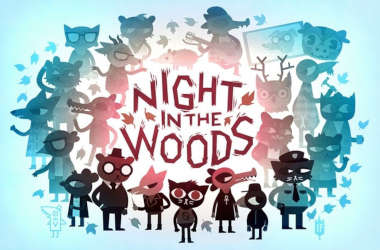
It features Mae, a college dropout coming back to her hometown, grapples with issues of social disconnection, identity decay, and fragmentation. The game’s most striking aspect is its conversations and the everyday actions, dreams, and ambling narratives hinting at Colt’s mental decline, providing a relatable experience of conflict and emotional fog.
Pros & Cons Night in the Woods
| Pros | Cons |
|---|---|
| Relatable depiction of post-adolescent mental struggles. | Gameplay is dialogue-heavy, light on action. |
| Rich character writing with emotional depth. | Platforming mechanics are basic. |
| Addresses dissociation and existential themes. | Pacing may feel slow for some. |
6.Disco Elysium
Disco Elysium is one of the best games with in-built mental health functions because of its profound role play system. The game in a unique way transforms the protagonist’s thoughts of self-loathing or of being a narcissist into personified characters in his head that dictate the choices he makes and the dialogues he speaks.
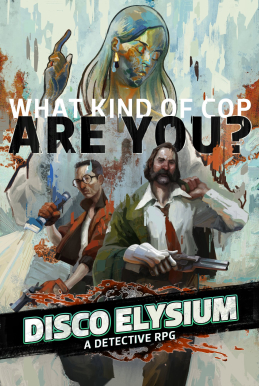
This internal monologue system lets players tackle issues such as addiction, depression and identity crisis. This game is remarkable with its alternative, and yet, gameplay mental states as mechanics feature. It gives players a (hopefully) unfiltered, intricate look at humanity as a whole.
Pros & Cons Disco Elysium
| Pros | Cons |
|---|---|
| Revolutionary inner dialogue system. | No traditional combat—may not suit all players. |
| Deep exploration of addiction, identity, and self-worth. | Heavy reading required. |
| Choice-driven narrative with psychological nuance. | Complex systems may overwhelm newcomers. |
7.Spiritfarer
Spiritfarer is one of the few games which elegantly infuses gameplay mechanics with mental wellness themes, as it explores death, grief, and closure. Stella, the main character, is a ferrymaster who helps spirits with unresolved emotional baggage. Each spirit embodies a different feeling that needs closure.
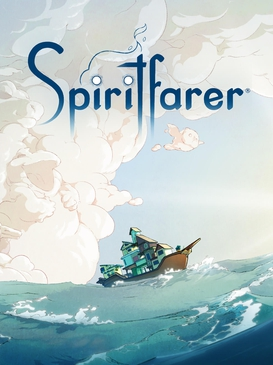
What sets the game apart is the way it incorporates farewells into gameplay which fosters reflection, empathy, and acceptance. By building, nurturing, and saying goodbyes to relationships, Spiritfarer allows one to discover a safe environment to wrestle with loss and slowly embrace the idea of moving on.
Pros & Cons Spiritfarer
| Pros | Cons |
|---|---|
| Gentle exploration of grief and letting go. | Can feel repetitive in late stages. |
| Beautiful, calming visuals and soundtrack. | Not challenging for players seeking intense gameplay. |
| Encourages emotional healing through farewells. | Some character arcs feel underdeveloped. |
8.Gris
Gris is one of the few games that incorporates mental health elements, effectively showcasing grief and emotional healing artistically. The protagonist’s internal struggle is conveyed through color, music, and fluid animation, working without any dialogue.
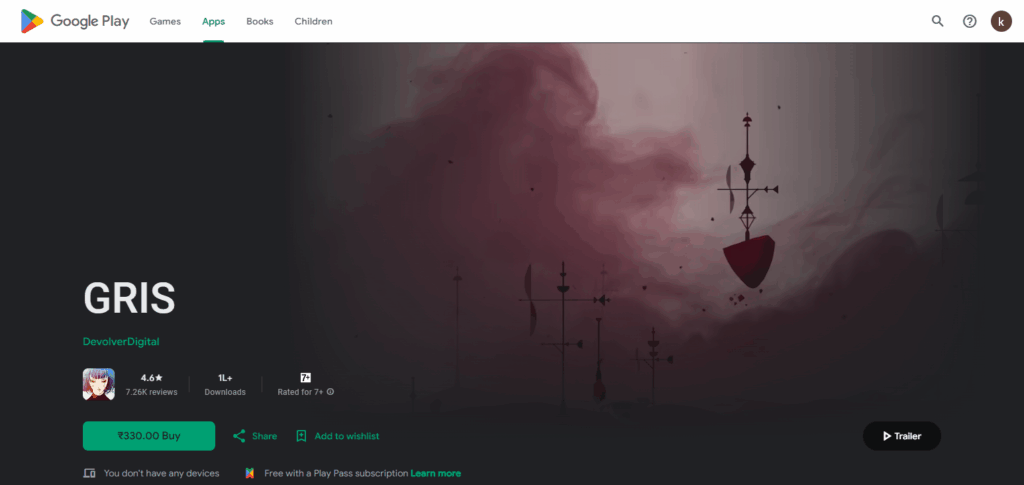
Every mechanic in the game corresponds to a grief stage, and the player’s emotional progress can be observed through regained abilities and changes in the environment. What sets the game apart is the captivating way it conveys grief and healing without words, letting players immerse in the healing process through poignant yet peaceful visuals.
Pros & Cons Gris
| Pros | Cons |
|---|---|
| Stunning visuals convey emotional states. | No spoken dialogue may confuse some players. |
| Non-verbal storytelling is symbolic and deep. | Very short gameplay duration. |
| Represents grief stages through color and gameplay. | Light puzzle-solving may lack challenge. |
9.To the Moon
To the Moon is perhaps one of the games that, in subtle ways, advanced the mental health genre with a heartfelt exploration of memory, regret, and reconciliation. It revolves around two doctors who travel into a dying man’s memories and unlock his life’s milestones to make his last wish come true.
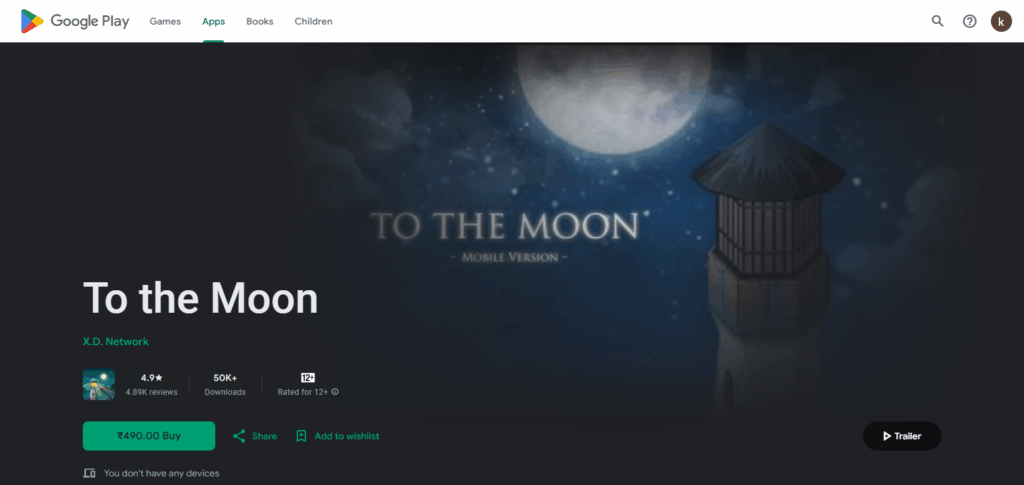
In the process, the man’s life struggles with love, autism, and loss is revealed. Perhaps its most distinctive feature is its thoughtful integration of memory traversal as a form of psychological traversal, showcasing the impact of emotions—whether resolved or not—on one’s life.
Pros & Cons To the Moon
| Pros | Cons |
|---|---|
| Emotional narrative about memory and regret. | Minimal interaction—more a visual novel. |
| Memorable music enhances storytelling. | Simple graphics may deter some players. |
| Tackles love, autism, and unspoken emotion sensitively. | Linear progression with no player choices. |
10.Actual Sunlight
Actual Sunlight is remarkable among games that incorporate mental health elements for its unvarnished depiction of depression and suicidal thoughts.
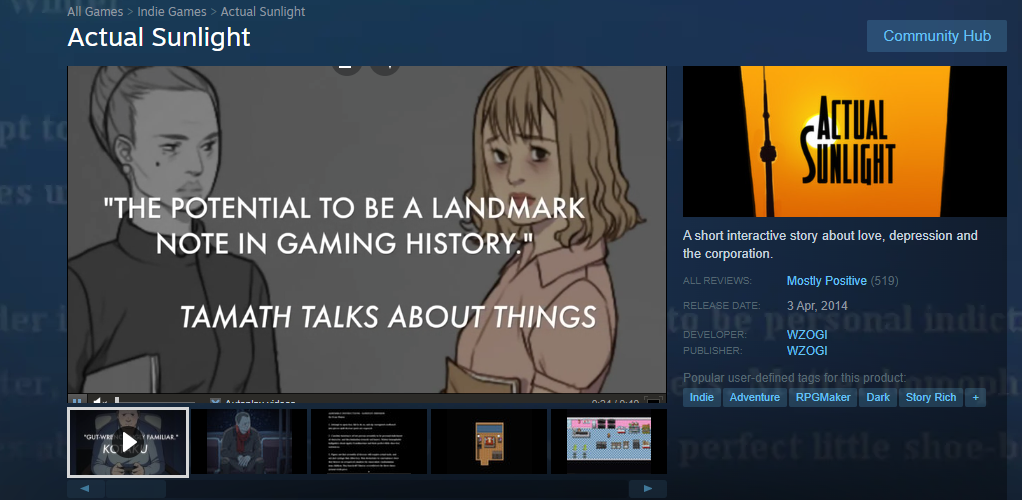
The game is viewed through the eyes of Evan Winter, a withdrawn, apathetic individual, whose mental decline is accompanied by simple visuals and poignant voiceover. It’s the starkness of the writing that stands out, no comforting solutions are offered, only a suffocating blanket of hopelessness is portrayed, something very few games achieve.
Pros & Cons Actual Sunlight
| Pros | Cons |
|---|---|
| Brutally honest portrayal of depression. | Extremely dark themes may be triggering. |
| Strong narrative voice with impactful writing. | Very short and minimal gameplay. |
| Raises awareness of suicidal ideation without romanticizing. | Lack of hope or resolution may alienate some. |
Conclusion
In closing, the most notable games with integrated mental health features tend to provide engaging emotional journeys that promote empathy, understanding, and introspection. Players can grapple with anxiety, grief, trauma, and depression in Hellblade, Celeste, Omori, and Spiritfarer, which seamlessly weave psychological elements into their narratives and enable players to meaningfully grapple with these profound issues.
These games in particular challenge the player’s understanding of mental health by incorporating it into the central storyline rather than treating it as an afterthought, thus expanding the player’s understanding in an interactive fashion and fostering compassion towards humans.


